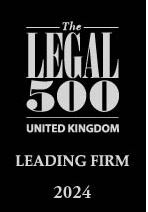Talking about money during a divorce can be tough, often bringing up strong feelings like anger and frustration, making it hard for couples to agree on a way forward. Should you have worries about your partner concealing assets during your divorce or the end of your civil partnership, a Freezing Order can serve to prevent them from transferring, handling, or liquidating those assets until the legal process is completed.
Pickerings Solicitors experienced divorce lawyers know how tricky these situations can be. They've helped many people whose ex-partners have tried to hide money and assets during a divorce such as
- money
- property
- vehicles
- shares and bonds.
- valuables such as jewellery and artwork.
Our main goal is to make sure you're financially secure as you move forward in life.
Our expertise isn't limited to just advising those who are seeking freezing orders. We also guide individuals on the receiving end of such orders, often assisting in the swift discharge of these injunctions if necessary.
Our family law team is experienced in acting for a wide range of individuals and their partners, including high-net-worth professionals. We're committed to helping you navigate post-divorce challenges, both emotionally and financially. Susan Davies is collaboratively trained and a member of Resolution, allowing her to resolve disputes amicably using the collaborative process where necessary.
Call our family law solicitors now on 01827 317070 or email: sdavies@pickerings-solicitors.com
What is a freezing order?
A Freezing Order, also known as a Freezing Injunction, is a court order that prevents someone from handling or moving their assets, in an attempt to hide them during divorce proceedings. This order preserves assets until the court makes a financial remedy order. The order doesn't give the applicant any security over the assets; it merely "freezes" them in place to ensure they remain available if needed to satisfy a judgement.
When would I need a freezing order?
When couples divorce or end a civil partnership, they must split their money and assets fairly. This requires complete transparency about both parties' financial situation. Even assets held by one individual or acquired before the marriage or civil partnership might be allocated to the other if deemed fair.
Family courts consider multiple factors, like the parties' needs, the number of children and their needs, as well as the duration of the marriage, to ensure a fair division.
The idea of sharing assets can be emotional, with some feeling certain assets are solely theirs. This emotion might drive some to hide assets during the split proceedings. Especially in scenarios where one individual predominantly manages the finances or has a considerable net worth, the other might be unaware of how assets are arranged, making hiding them easier. Freezing assets ensures that a party with more financial resources cannot unjustly leave the marriage or civil partnership, taking money and property that should rightfully be shared.
What assets can be included in a freezing order or freezing injunction?
A freezing order can target a wide range of assets, even assets abroad. These can include:
- Bank accounts.
- Real estate.
- Vehicles.
- Stocks and other investments.
- High-value items like art and jewellery.
Freezing Orders can also include potential assets like upcoming personal injury compensation. Usually, the Court will freeze known assets such as bank accounts, but it can also extend the order to include all assets held or managed by a spouse or civil partner.
How do I apply for a freezing order?
Getting a freezing order can be quite involved as well as costly, although, when looking at your claim's value and the assets involved, the benefits often exceed the costs. Pickerings family lawyers are able to give clear advice on your chances and help decide if applying is the right move for you.
To get a freezing order, a court application is necessary. You will likely have to be present at a court hearing, but we are able to represent you throughout the process.
In some cases, you can apply for a Freezing Order 'without notice,' which means your spouse or civil partner won't know about your application. This method helps stop them from hiding assets before the Order is enforced.
When would a court issue a freezing order?
The court can put a freeze on things, but they'll only do it if it's fair and certain conditions are met. The following factors must be in place before the court grants a freezing order:
- The English court must have jurisdiction.
- The person applying needs to have a valid reason, like being deceived or someone breaking their trust. A counter-claim against the other party works too.
- There should be a decent chance they have a case. Even if they might not win, the court will still consider how strong their argument is.
- There should be assets (like money or property).
- There's a concern that whoever controls those assets might misuse or get rid of them.
- If it turns out the freeze shouldn't have happened, the person applying promises to cover any costs or damages.
Call our family law solicitors now on 01827 317070 or email: sdavies@pickerings-solicitors.com



